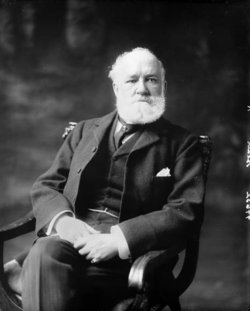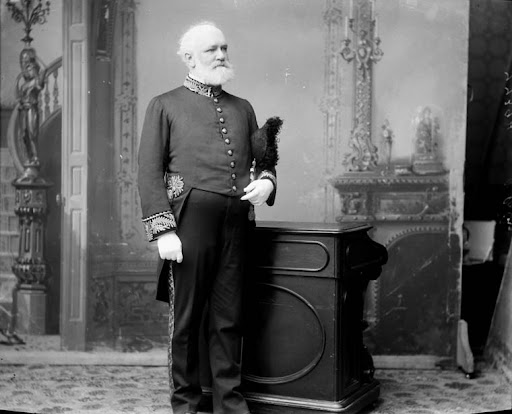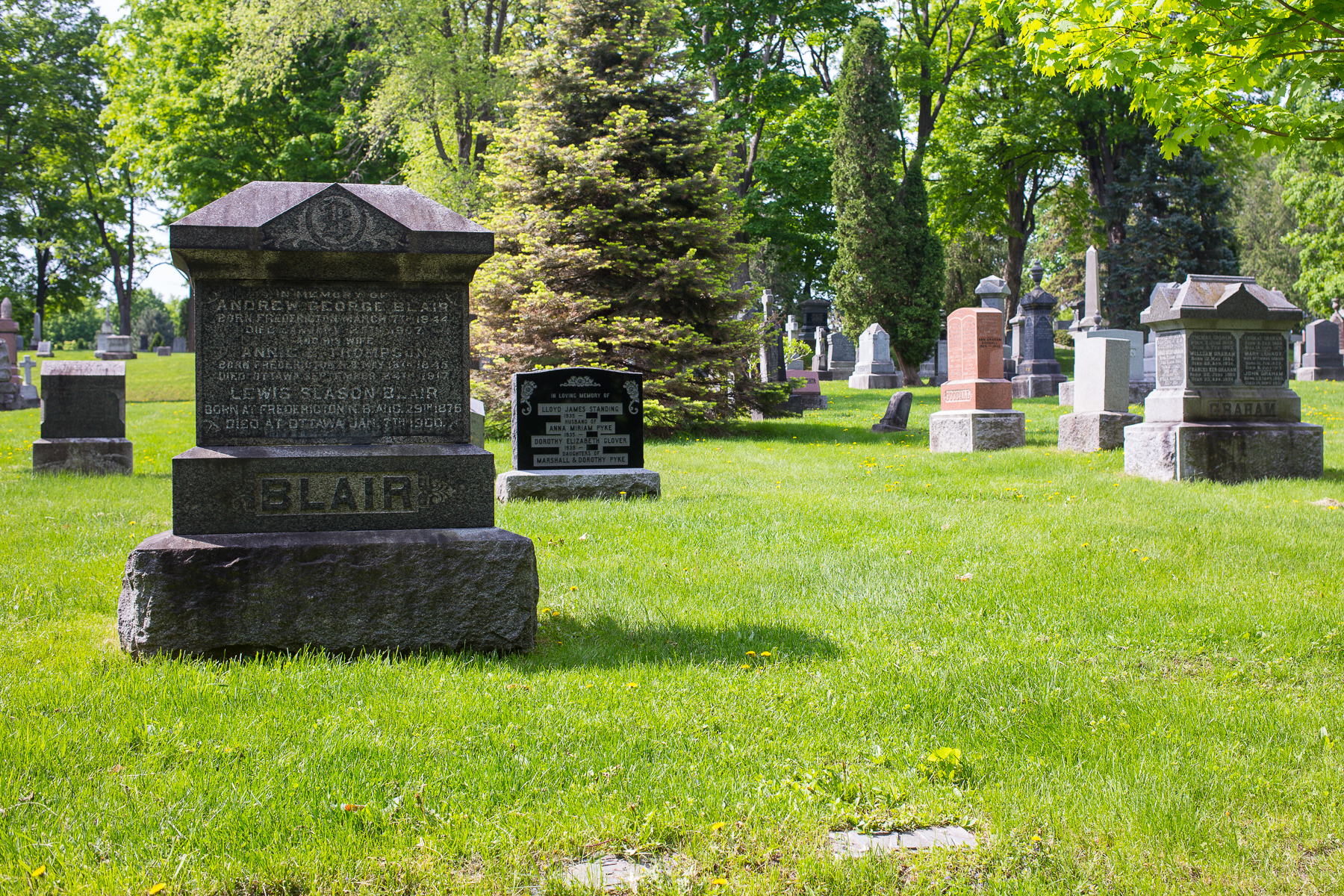
From Premier to Chairman of the Board of Railways - Andrew George Blair
Andrew George Blair
Section 41, Lot 75 N
Born in Fredericton, New Brunswick on March 7, 1844, Blair was called to the bar of New Brunswick in 1866. He was first elected to the Legislative Assembly of New Brunswick in 1878 after unsuccessful attempts in the previous two elections.
Though Blair was a supporter of Sir John A. Macdonald's federal Liberal-Conservatives, he joined the parliamentary opposition in the legislature and, in 1879, became leader of the opposition to the Conservative government of Premier John James Fraser. He molded the disparate opposition into the modern Liberal Party of New Brunswick, instituting party platforms or manifestos. He launched the first province-wide political campaign in an era when campaigns had been run largely on a constituency basis.
He took the party to power in 1883, winning enough support in the newly elected legislature to form a government. Blair became premier and Attorney-General. Blair's government built a three-quarters of a mile long bridge across the Saint John River, linking Fredericton with villages and factories, notably that of Boss Gibson, on the other side of the river, despite opposition by the federal government, which maintained that it was beyond provincial power to do so.

His government also went to court to win the right to grant liquor licenses. He also extended the franchise, which had been exclusively male, to widows and unmarried women who owned property. He was opposed, however, to universal female suffrage.His government also abolished the Legislative Council (the legislature's Upper House).
The Liberal government almost lost the 1889 election but was able to stay in power with the support of independent Members of the Legislative Assembly (MLAs). Blair lost his own seat in the 1892 election, due to Protestant opposition to his policy of accommodating Acadians and other Catholics.Blair had appointed several Acadians and other Catholics to his cabinet and other government positions. Blair was able to re-enter the house through a by-election.
After leading his party to a major electoral victory in 1895, Blair left provincial politics in 1896 when he was appointed Minister of Railways and Canals in the federal Cabinet of Liberal Prime Minister Wilfrid Laurier. He was sworn in as Minister of Railways and Canals on 13 July 1896, entered the House of Commons of Canada in an August 1896 by-election for the Sunbury and Queens riding, and was re-elected in the 1900 election. Blair notified the government of his resignation on 13 July 1903. To prevent him from becoming a major opposition figure, Laurier appointed Blair to head the Board of Railway Commissioners in December 1903, taking Blair out of active politics and out of the House of Commons.

He died on January 25, 1907, of a heart attack during a dinner party in Fredericton, New Brunswick. and was buried in the Beechwood Cemetery in Ottawa, Ontario.

He served as the seventh premier of New Brunswick for 13 years and 136 days, the second-longest tenure in the province's history, behind Richard Hatfield's tenure of 16 years and 310 days.

